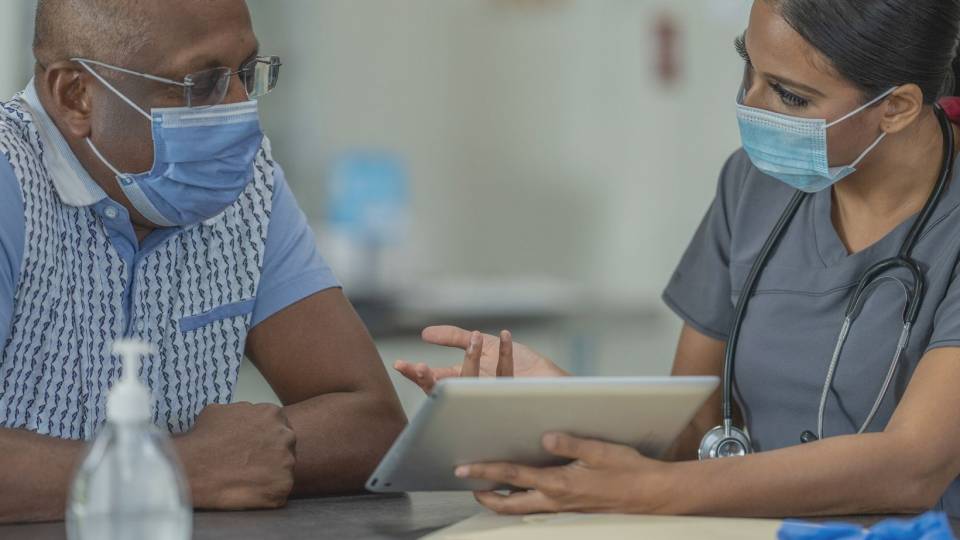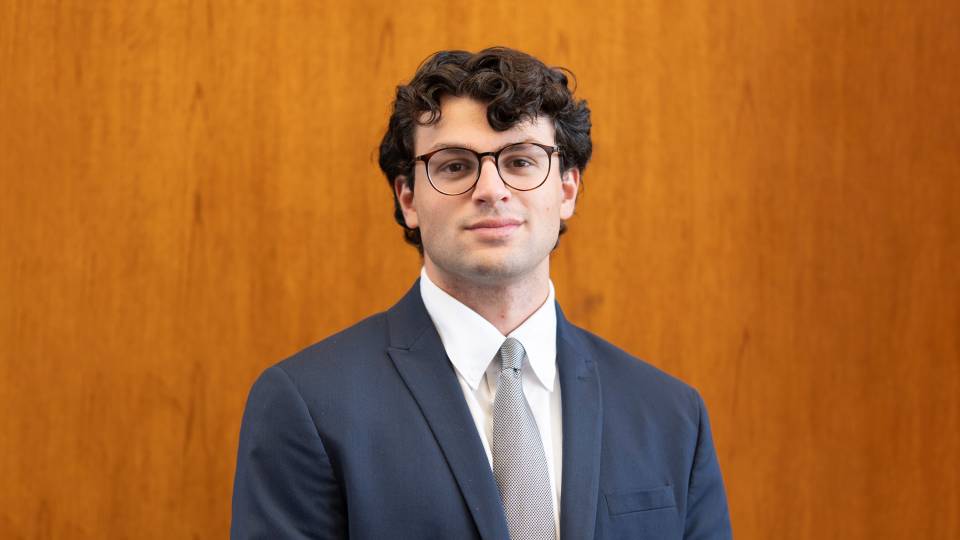For the first time in two years, Princeton University students traveled domestically and abroad for summer internships in global health. The Center for Health and Wellbeing (CHW) at the School for Public and International Affairs (SPIA) sponsored 91 opportunities for research, senior thesis projects and other health-focused endeavors.

(From left to right) Tiffany Tsai ’25, Safiya Topiwala ’24, Nhuquynh Nguyen ’23, Joan Perez ’23, Johnson Lin ’25 and Michelle Wang ’23 stand outside The Oswaldo Cruz Foundation in Rio de Janeiro.
While some internships were accomplished remotely, most were on site. Relaxed travel restrictions resulting from a new phase in the COVID pandemic allowed students to visit Asia, Africa, Australia, Europe, South America and many U.S. destinations to explore a wide range of topics, from antimicrobial resistance to brain cancer therapies, barriers to childhood immunizations in low- and middle- income countries, and the impact of COVID-19 on mental health.
“In partnership with our host institutions, we were delighted to, once again, offer immersive, international experiences for students interested in global health,” said Gilbert Collins, director of global health programs and co-director of CHW. “While virtual work is valuable and rewarding, on-site internships allow students to more deeply engage with local cultures and stakeholders.”
These fully funded internships, open to all Princeton undergraduate and graduate students, enrich academic coursework in meaningful ways. Students gain perspective on global health while formulating ideas for additional research, advanced education, and careers.
Visiting students at work
In July, a CHW staff team visited student interns at two new partner organizations: The Oswaldo Cruz Foundation (Fiocruz), a health research and development institution in Rio de Janeiro, and UNICEF South Africa, based in Pretoria. The meetings revealed extraordinary student work and eye-opening experiences.

Safiya Topiwala peers through a microscope while conducting research on leprosy and other infectious diseases.
In many cases, the internships exposed students to the practical side of global health for the first time.
“I’ve traveled abroad but had never worked or studied in another country,” noted Michelle Wang ’23, a chemistry concentrator pursuing a certificate in global health and health policy (GHP). “The internship at Fiocruz brought to life the things we read in class and helped me understand what global health looks like in the real world.”
For periods of eight to 10 weeks, CHW-sponsored interns collaborated with clinicians, scientists and scholars to assess and elevate public health. Wang investigated the impact of natural disasters on the mental and physical health of Brazilian citizens and developed strategies for building stronger, more resilient communities.
Also at Fiocruz, Safiya Topiwala ’24, a molecular biology concentrator pursuing a GHP certificate, studied how leprosy is diagnosed and treated in Brazilian clinics while also conducting laboratory research. “This kind of research could improve our understanding of leprosy and how to manage infectious diseases,” Topiwala said.
Other Fiocruz interns worked in the institution’s technical-scientific unit and at its hospital for women, children and adolescents, where they examined issues related to health and the environment or shadowed physicians caring for patients with high-risk pregnancies.
“There is a lot to be learned about health equity when you visit a country with a unified public health system,” said Johnson Lin ’25, who is considering a concentration in ecology and evolutionary biology.

Ariza Francisco poses in front of a mural at UNICEF in Pretoria, South Africa
Ariza Francisco, an MPA candidate at SPIA, spent her summer at UNICEF South Africa. Her first interaction with UNICEF occurred in 2013 when her home country – the Philippines – was struck by a devastating typhoon that killed thousands of people. UNICEF was among the first responders on the ground, which influenced her desire to support the agency’s mission of bettering children’s lives.
During her internship, Francisco, who is concentrating in international development and urban policy, analyzed national immunization data to identify challenges, barriers and bottlenecks facing unvaccinated children in South Africa. Her analysis and recommendations were presented to the country’s highest health advisory committee, providing input to strengthen the country’s immunization program.
“This summer, I learned how important immunization is to global health. It’s our first touchpoint with infants, children and sometimes mothers,” she said.
She emphasized how improving the country’s immunization rates through research and well-informed community initiatives could reduce the prevalence of preventable diseases, such as measles and polio, while enhancing the overall health and wellbeing of South African families.
Shaping lives at home and abroad
The Internships in Global Health program aims not only to provide meaningful summer engagement opportunities, but also to inspire future academic and professional work in the global health sphere. Interns typically return to Princeton with a broader view of global health and a renewed sense of purpose. Some students feel more confident about their chosen field of study while others set forth on an entirely new path.
Tiffany Tsai ’25, an intended molecular biology concentrator, rekindled her childhood ambitions. After losing her grandfather to cancer at age four, she developed a curiosity about medicine and a quest for battling disease. Her summer internship in Brazil increased that resolve, leaving her more determined to improve public health and bridge the gap between modern medicine and vulnerable communities.
Joan Perez ’23, a medical anthropology concentrator pursuing a GHP certificate, and Nhuquynh Nguyen ’23, a philosophy concentrator pursuing a certificate in neuroscience, affirmed a passion for maternal-child health. “Working in a public hospital has fueled my desire to open a free health care clinic in the United States or South America, where I could impact thousands of lives in low-income communities,” said Perez.
Nguyen rejuvenated her vigor for women’s health care and advocacy, particularly with reproductive rights. She hopes to apply insights from her research in Brazil to her work with the Princeton Students for Reproductive Justice organization on campus.
Across the board, students emphasized that their summer internships would have profound, long-lasting effects, personally and professionally.
“I’ve learned that good health care — in all settings — starts with compassion,” added Topiwala, who observed a simple “beauty” in showing people that you care. The aspiring physician noted that she will bring that lesson to her future medical practice practice and all her pursuits in life.



